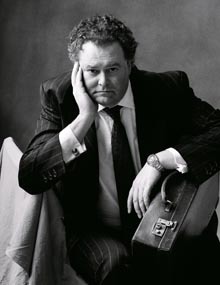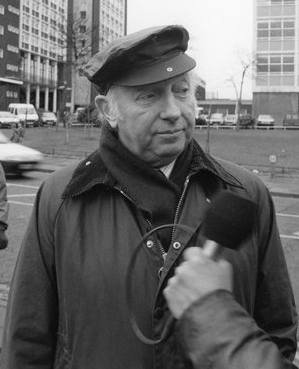Espionage, spying, or intelligence gathering is the act of obtaining secret or confidential information (intelligence). A person who commits espionage is called an espionage agent or spy. Any individual or spy ring, in the service of a government, company, criminal organization, or independent operation, can commit espionage. The practice is clandestine, as it is by definition unwelcome. In some circumstances, it may be a legal tool of law enforcement and in others, it may be illegal and punishable by law.

MI5, officially the Security Service, is the United Kingdom's domestic counter-intelligence and security agency and is part of its intelligence machinery alongside the Secret Intelligence Service (MI6), Government Communications Headquarters (GCHQ), and Defence Intelligence (DI). MI5 is directed by the Joint Intelligence Committee (JIC), and the service is bound by the Security Service Act 1989. The service is directed to protect British parliamentary democracy and economic interests and to counter terrorism and espionage within the United Kingdom (UK). Within the civil service community, the service is colloquially known as Box, or Box 500, after its official wartime address of PO Box 500; its current address is PO Box 3255, London SW1P 1AE.

The 1984–1985 United Kingdom miners' strike was a major industrial action within the British coal industry in an attempt to prevent closures of pits that the government deemed "uneconomic" in the coal industry, which had been nationalised in 1947. It was led by Arthur Scargill of the National Union of Mineworkers (NUM) against the National Coal Board (NCB), a government agency. Opposition to the strike was led by the Conservative government of Prime Minister Margaret Thatcher, who wanted to reduce the power of the trade unions.

The Battle of Orgreave was a violent confrontation on 18 June 1984 between pickets and officers of the South Yorkshire Police (SYP) and other police forces, including the Metropolitan Police, at a British Steel Corporation (BSC) coking plant at Orgreave, in Rotherham, South Yorkshire, England. It was a pivotal event in the 1984–1985 UK miners' strike, and one of the most violent clashes in British industrial history.

Counterintelligence (counter-intelligence) or counterespionage (counter-espionage) is any activity aimed at protecting an agency's intelligence program from an opposition's intelligence service. It includes gathering information and conducting activities to prevent espionage, sabotage, assassinations or other intelligence activities conducted by, for, or on behalf of foreign powers, organizations or persons.

Reginald Victor Jones, FRSE, LLD was a British physicist and scientific military intelligence expert who played an important role in the defence of Britain in World War II by solving scientific and technical problems, and by the extensive use of deception throughout the war to confuse the Germans.
Alasdair David Gordon Milne was a British television producer and executive. He had a long career at the BBC, where he was eventually promoted to Director-General, and was described by The Independent as "one of the most original and talented programme-makers to emerge during television's formative years".

Martin Dillon is an Irish author, journalist, and broadcaster. He has won international acclaim for his investigative reporting and non-fiction works on the Troubles, including his bestselling trilogy, The Shankill Butchers, The Dirty War and God and the Gun, about the Northern Ireland conflict. The historian and scholar, Dr. Conor Cruise O'Brien, described him as "our Virgil to that Inferno". The Irish Times hailed him as "one of the most creative writers of our time".
Roger Edward Windsor was chief executive of the National Union of Mineworkers (NUM) between 1983 and 1989, including during the 1984 miners' strike. He later moved to France and then to Herefordshire.

John Giles Hendy, Baron Hendy,, is an English barrister practising in employment and trade union law, and a member of the House of Lords.
Andrew Philip Drummond-Murray, commonly known as Andrew Murray, is a British trade union and Labour Party official and activist. Murray was seconded from Unite the Union to Labour headquarters for the 2017 United Kingdom general election, subsequently becoming an adviser to Jeremy Corbyn from 2018 to 2020.

Peter Taylor, is a British journalist, writer and documentary-maker. He is best known for his coverage of the political and armed conflict in Northern Ireland, widely known as the Troubles, and for his investigation of Al Qaeda and Islamist extremism in the wake of 9/11. He also covers the issue of smoking and health and the politics of tobacco for which he was awarded the WHO Gold Medal for Services to Public Health. He has written books and researched, written and presented television documentaries over a period of more than forty years. In 2014, Taylor was awarded both a Royal Television Society lifetime achievement award and a BAFTA special award.
The Green Book is a training and induction manual issued by the Irish Republican Army to new volunteers. It was used by the post-Irish Civil War Irish Republican Army (IRA) and Cumann na mBan,, along with later incarnations such as the Provisional IRA (IRA). It includes a statement of military objectives, tactics and conditions for military victory against the British government. This military victory was to be achieved as part of "the ongoing liberation of Ireland from foreign occupiers". The Green Book has acted as a manual of conduct and induction to the organisation since at least the 1950s.

Mark Lee Urban is a British journalist, historian, and broadcaster. He is a writer and commentator for The Sunday Times, specialising in defence and foreign affairs. Until May 2024 he was Diplomatic Editor and occasional presenter for BBC Two's Newsnight.
Seumas Patrick Charles Milne is a British journalist and political aide. He was appointed as the Labour Party's Executive Director of Strategy and Communications in October 2015 under Labour Party Leader Jeremy Corbyn, initially on leave from The Guardian. In January 2017, he left The Guardian in order to work for the party full-time. He left the role upon Corbyn's departure as leader in April 2020.
Tony Geraghty is a British-Irish writer and journalist. He served in the Parachute Regiment, and was awarded the Joint Service Commendation Medal for his work as a military liaison officer with U.S. forces during the Gulf War. He has been a journalist for The Boston Globe and was the Sunday Times Defence Correspondent in the 1970s.

Francis Beckett is an English author, journalist, biographer, playwright and contemporary historian. He has written biographies of Aneurin Bevan, Clement Attlee, Harold Macmillan, Gordon Brown and Tony Blair. He has also written on education for the New Statesman, The Guardian and The Independent and has been the editor of Third Age Matters, the national magazine published by the University of the Third Age. Beckett has been described as "an Old Labour romantic" by Guardian associate editor Michael White.

Mark Howard Stephens is an English solicitor specializing in media law, intellectual property rights, freedom of speech and human rights. He is known for representing James Hewitt when allegations of his affair with Diana, Princess of Wales first emerged. In 2010, he represented Julian Assange, the founder of WikiLeaks, defending him against an extradition request to Sweden based on suspicion of numerous sexual offences. He also founded the law firm Howard Kennedy LLP, which has represented several high-profile clients in media and entertainment law cases.

Arthur Scargill is a British trade unionist who was President of the National Union of Mineworkers (NUM) from 1982 to 2002. He is best known for leading the 1984–1985 UK miners' strike, a major event in the history of the British labour movement.
George Bolton is a Scottish former trade unionist and communist activist.












